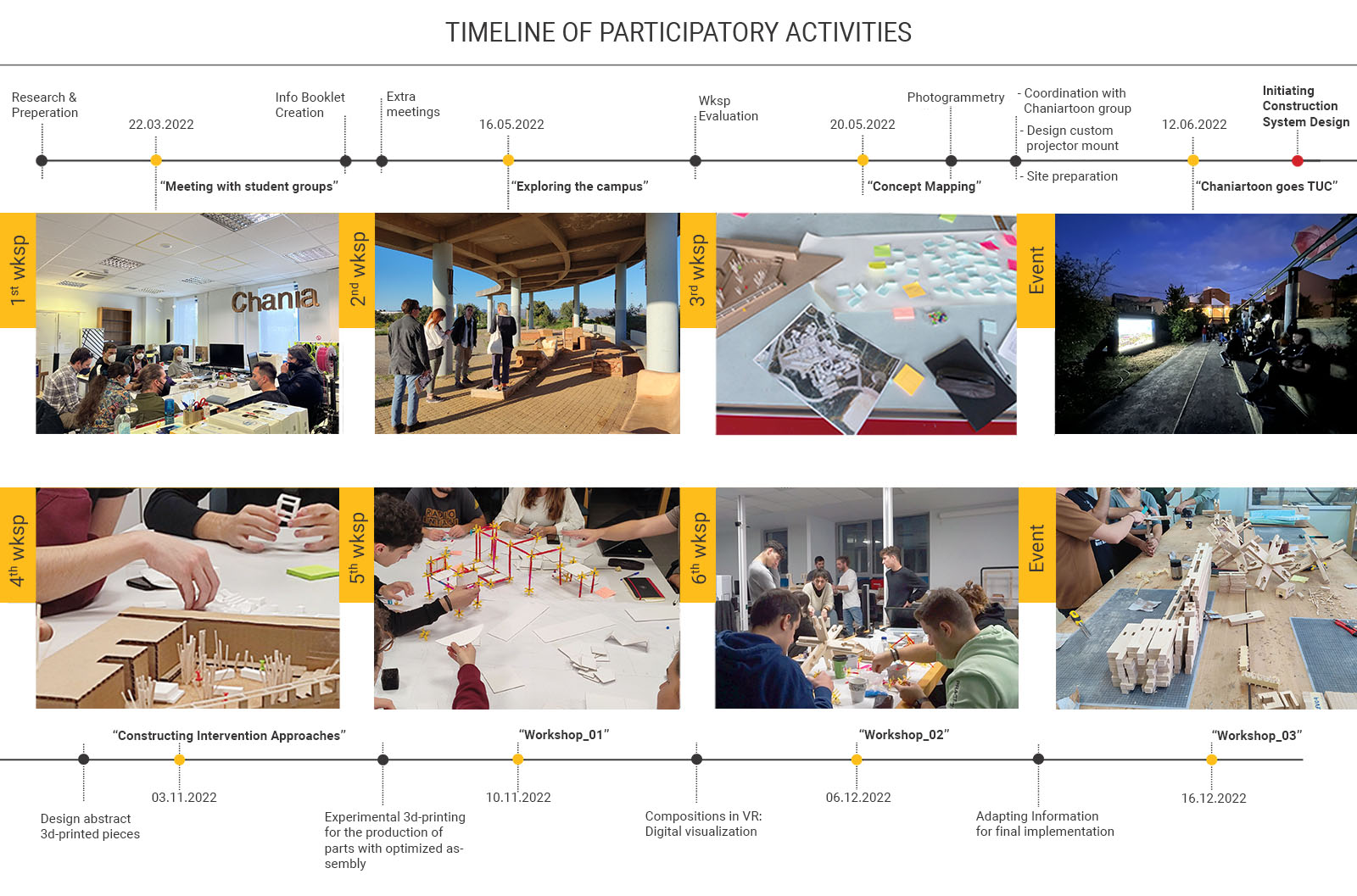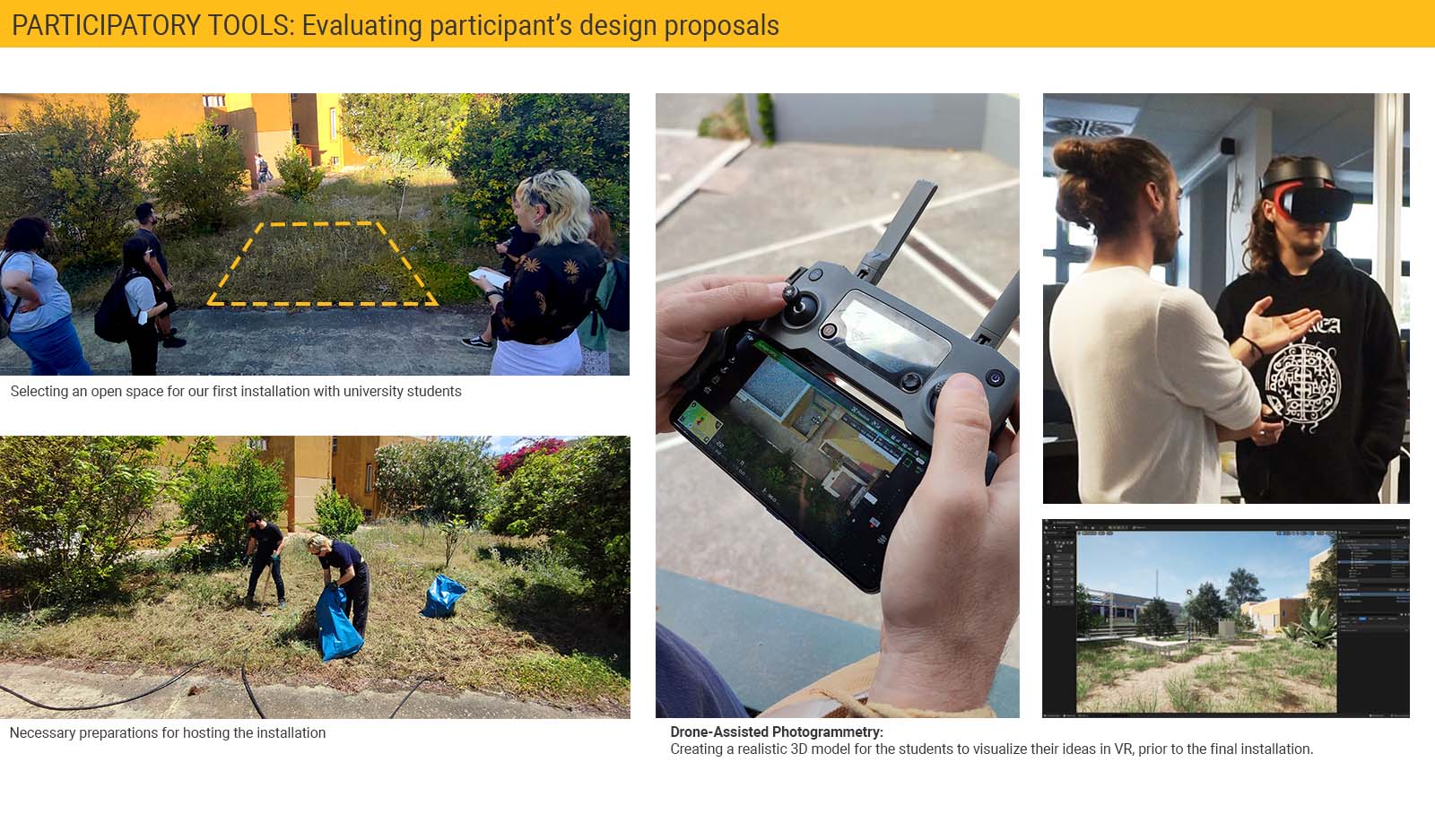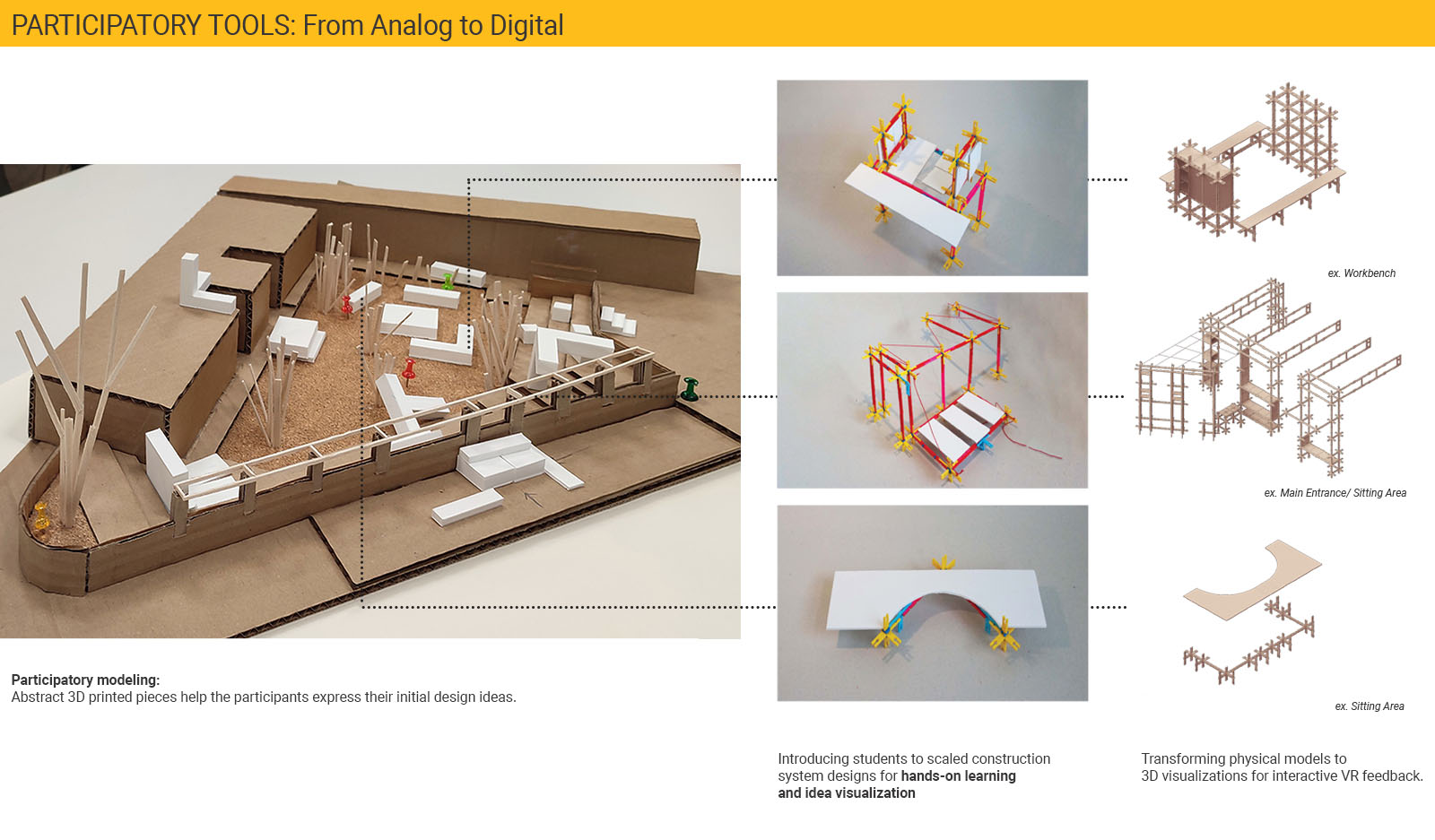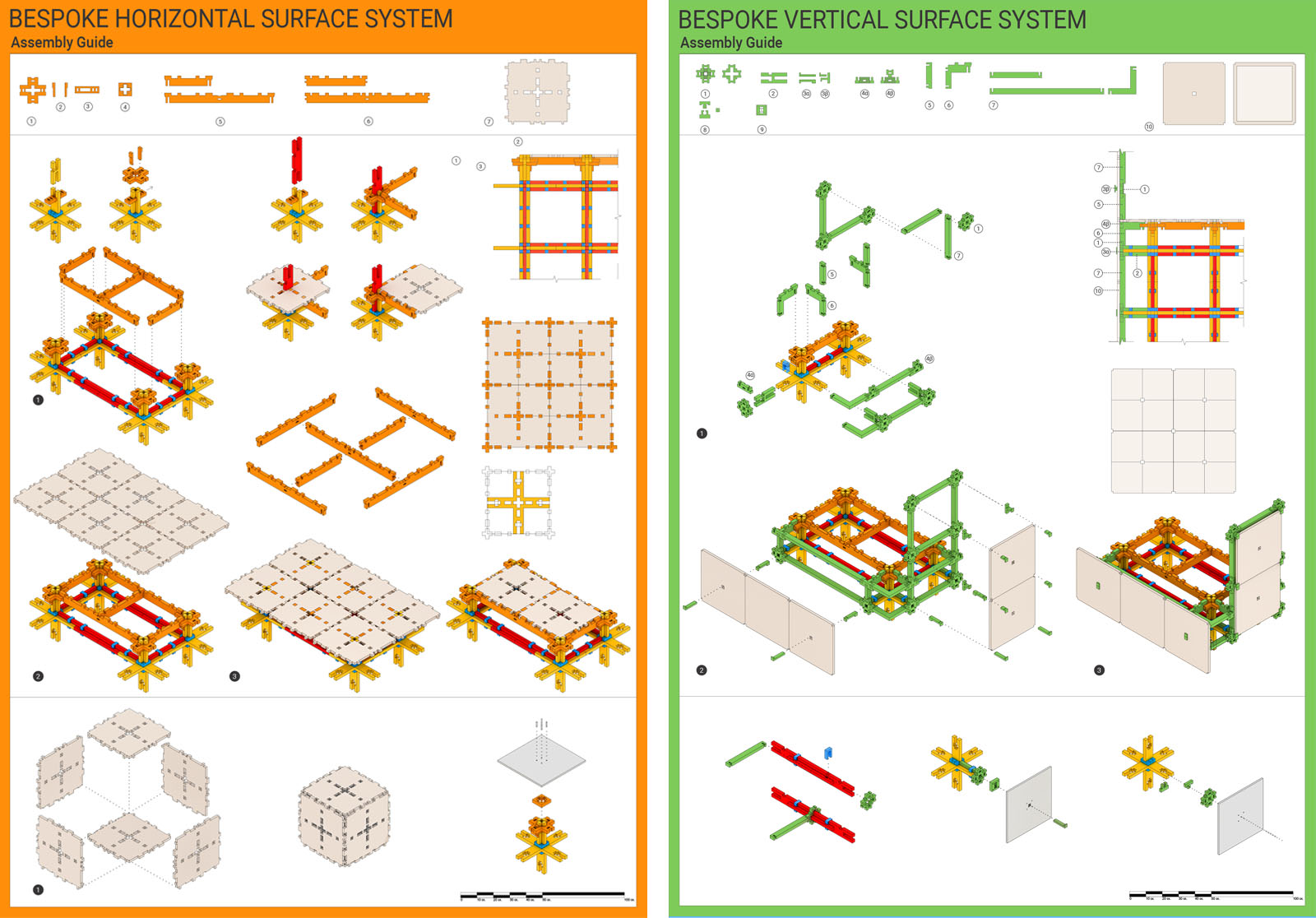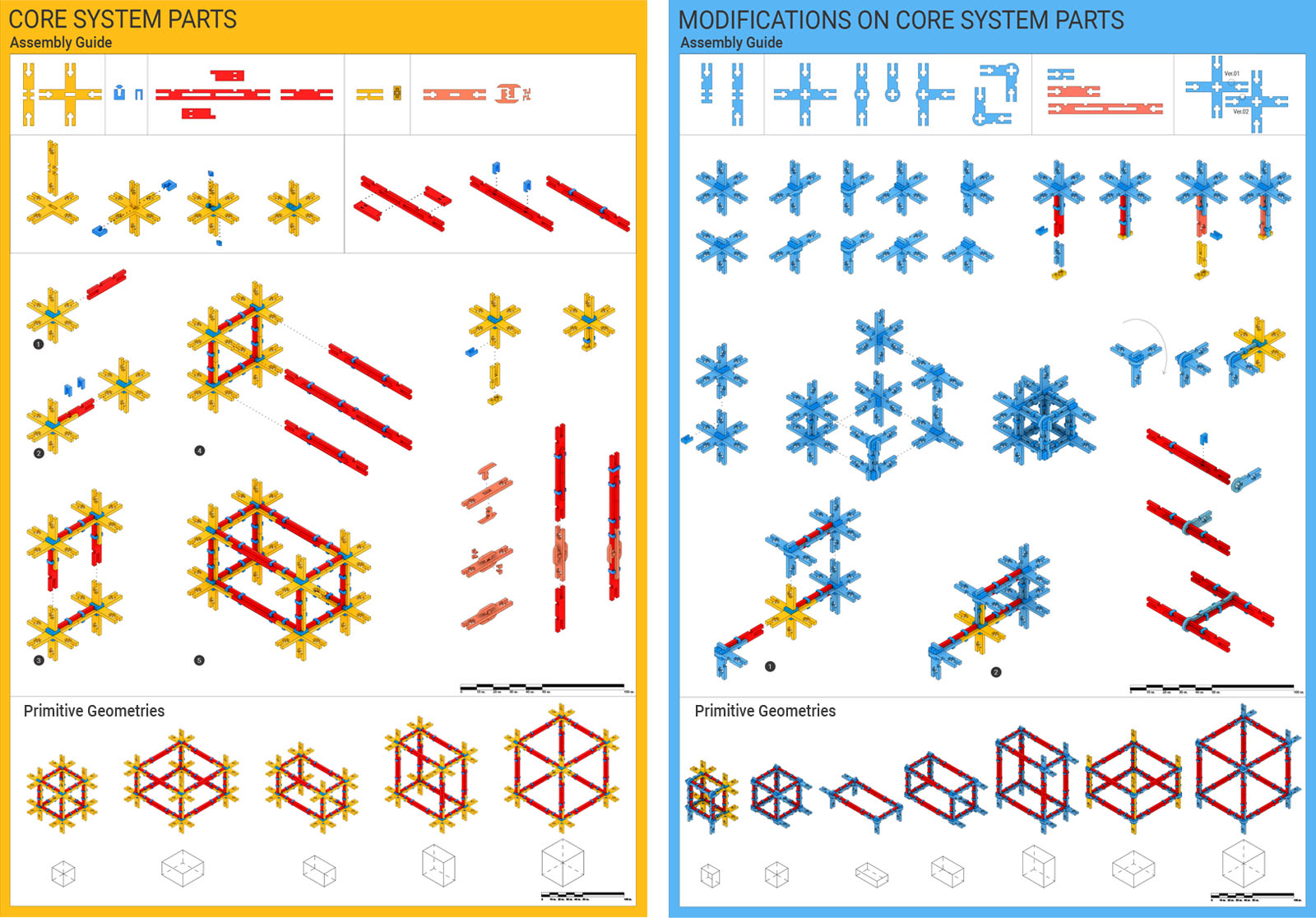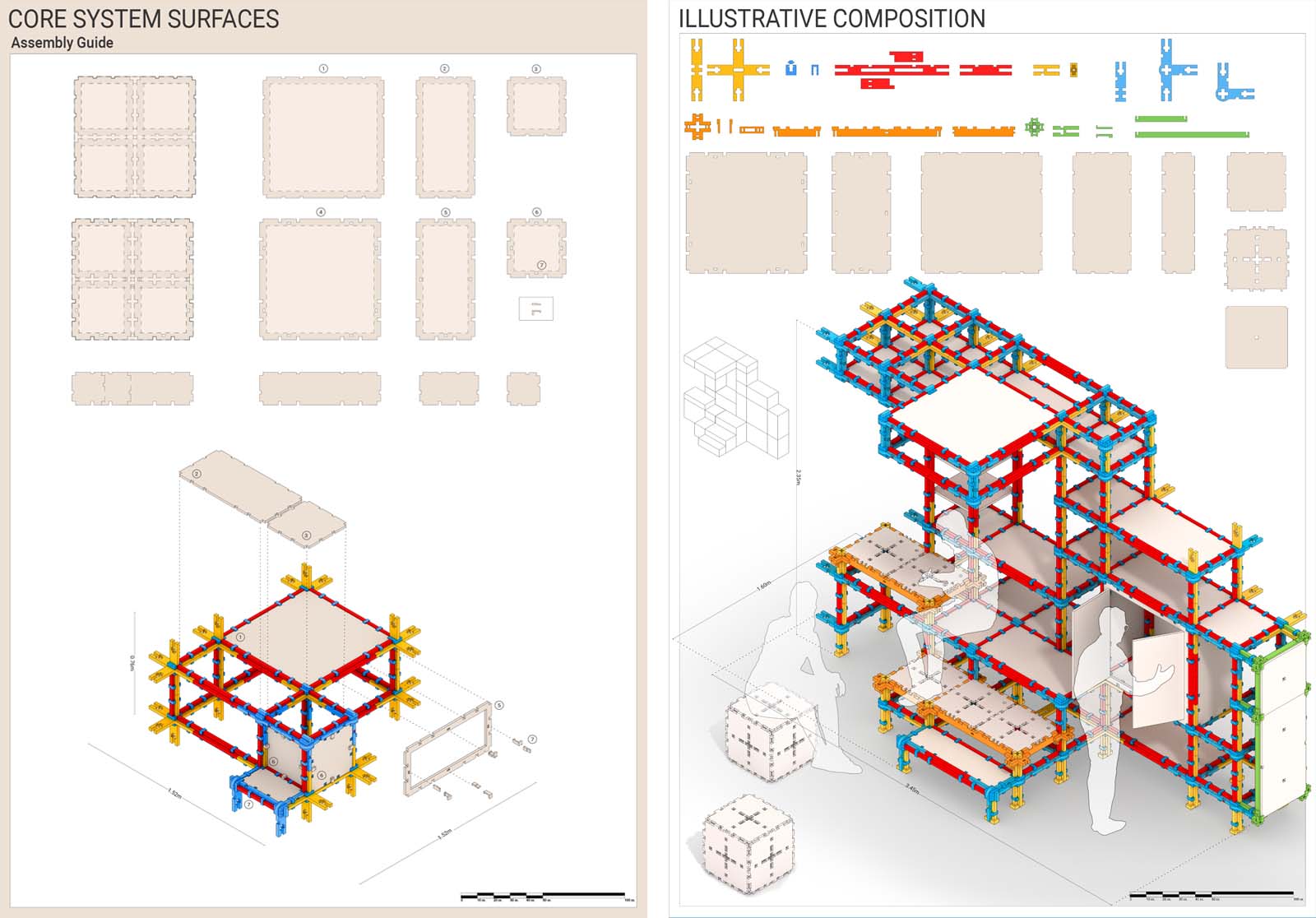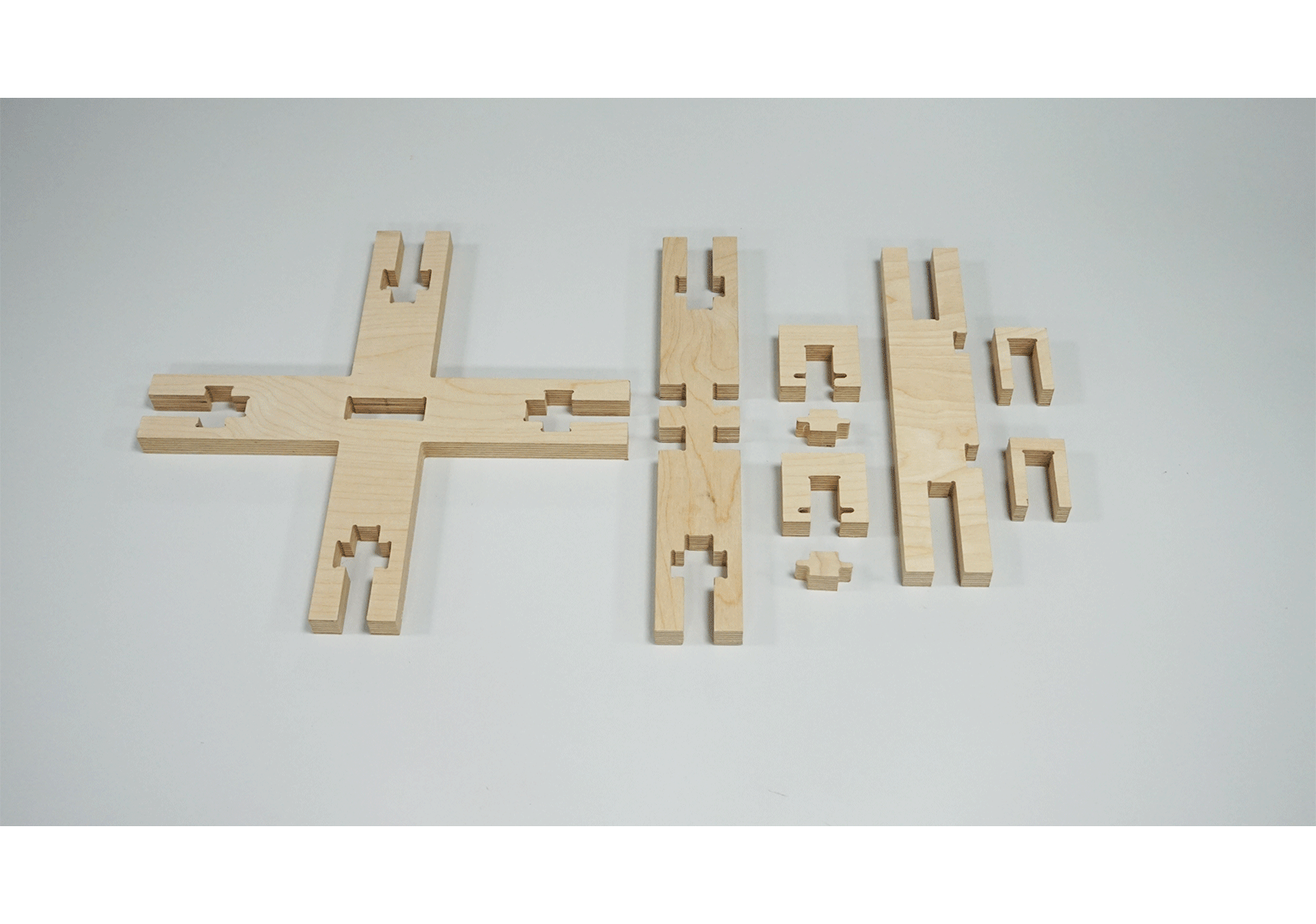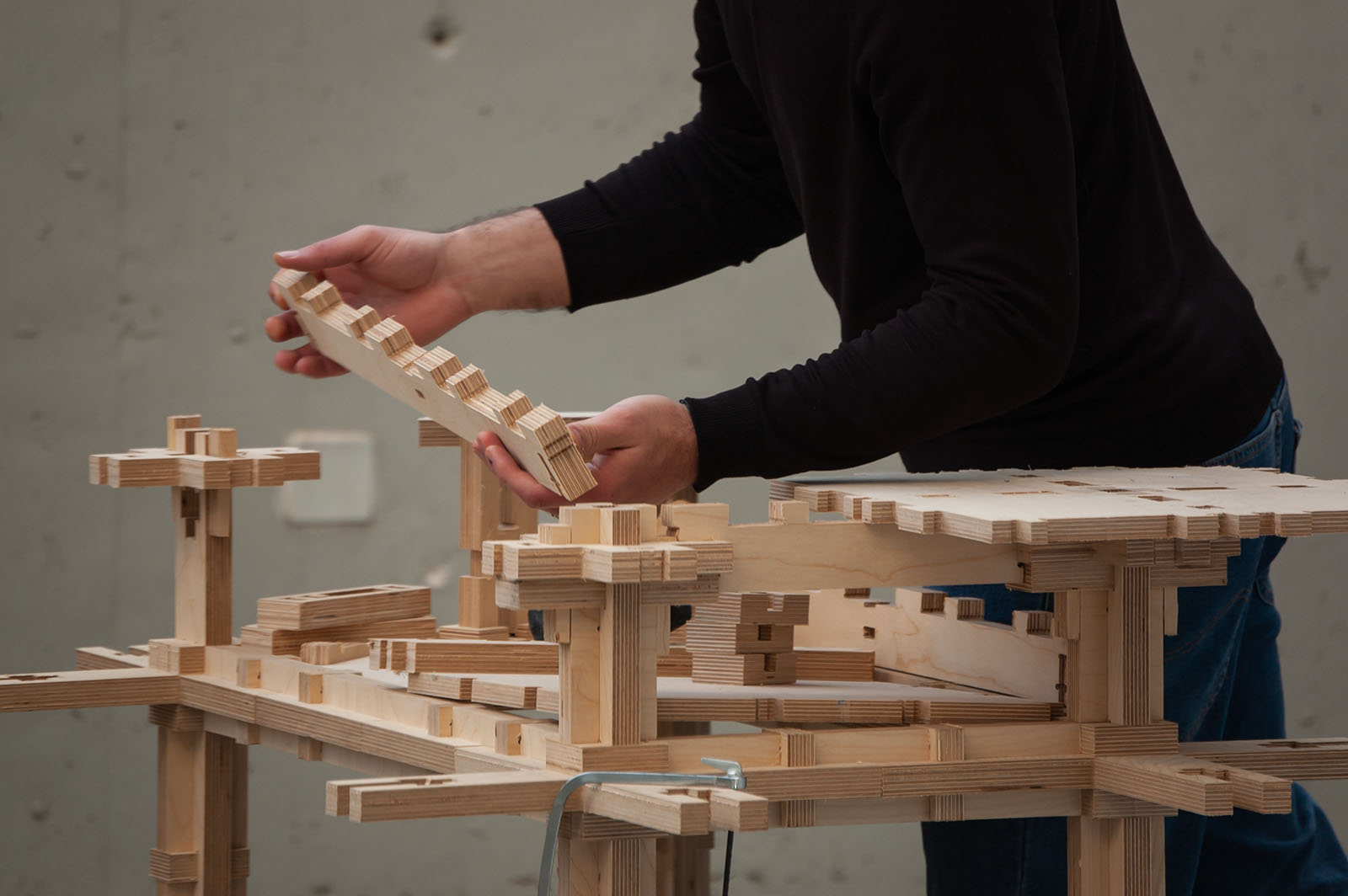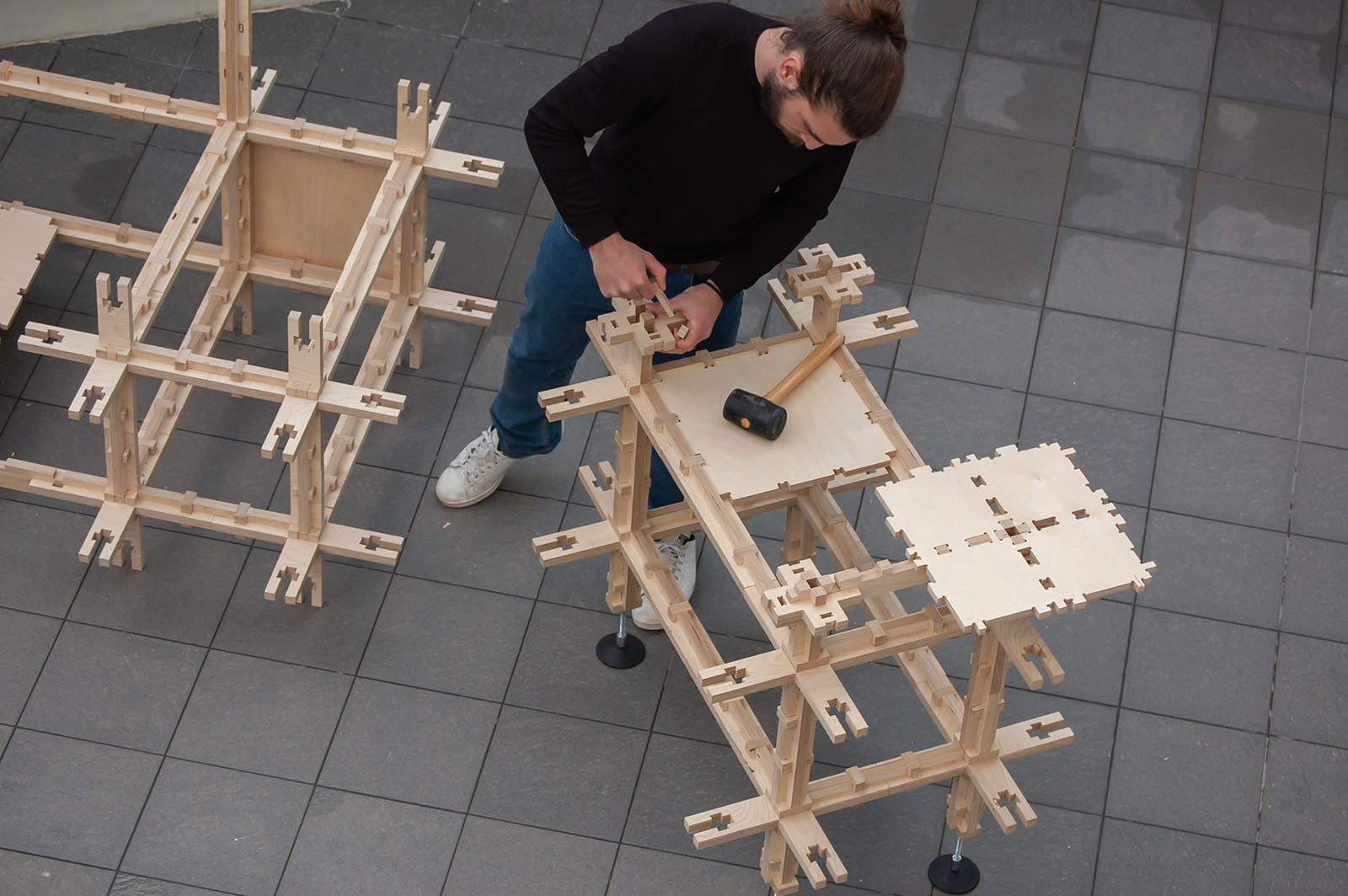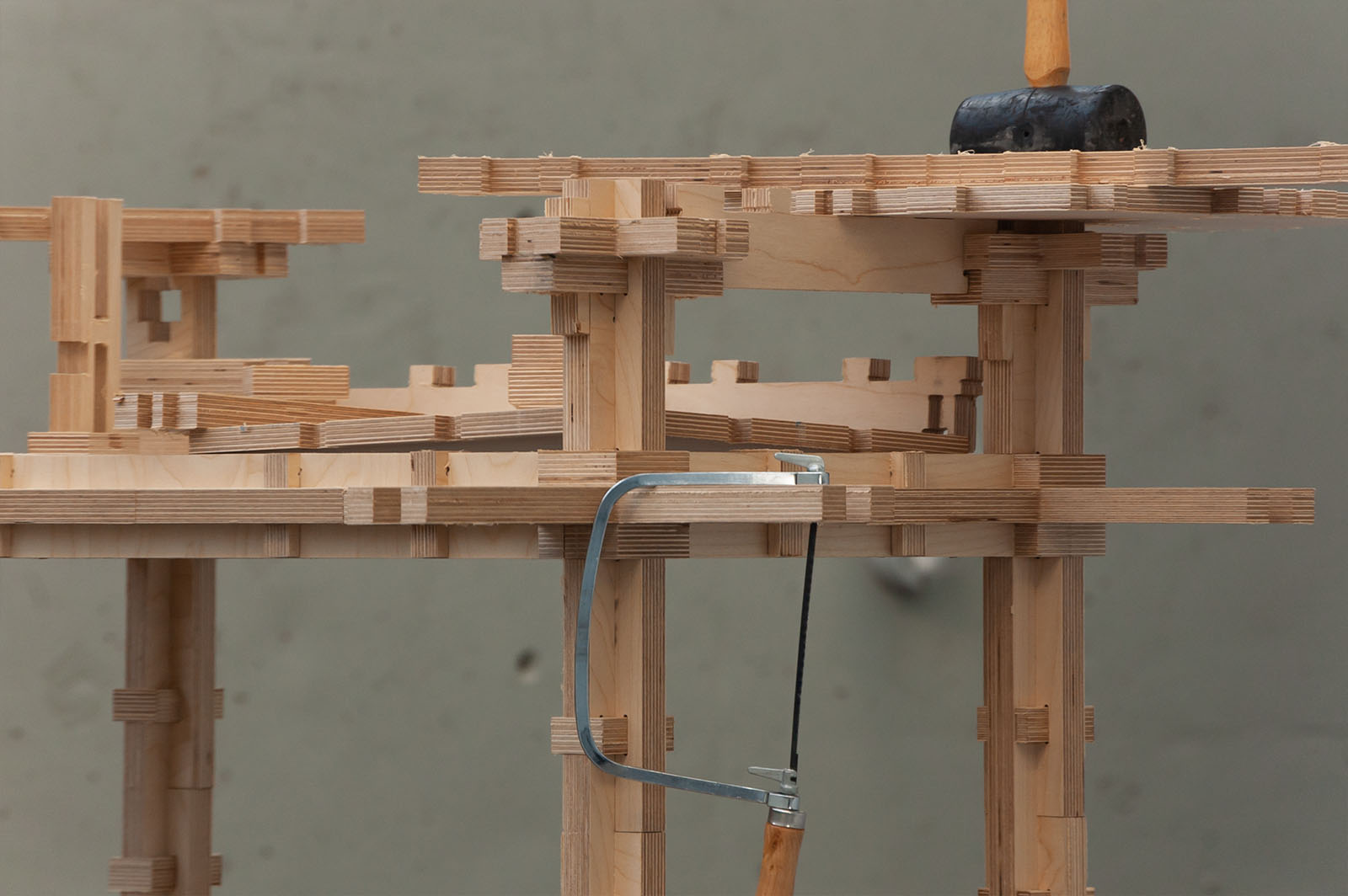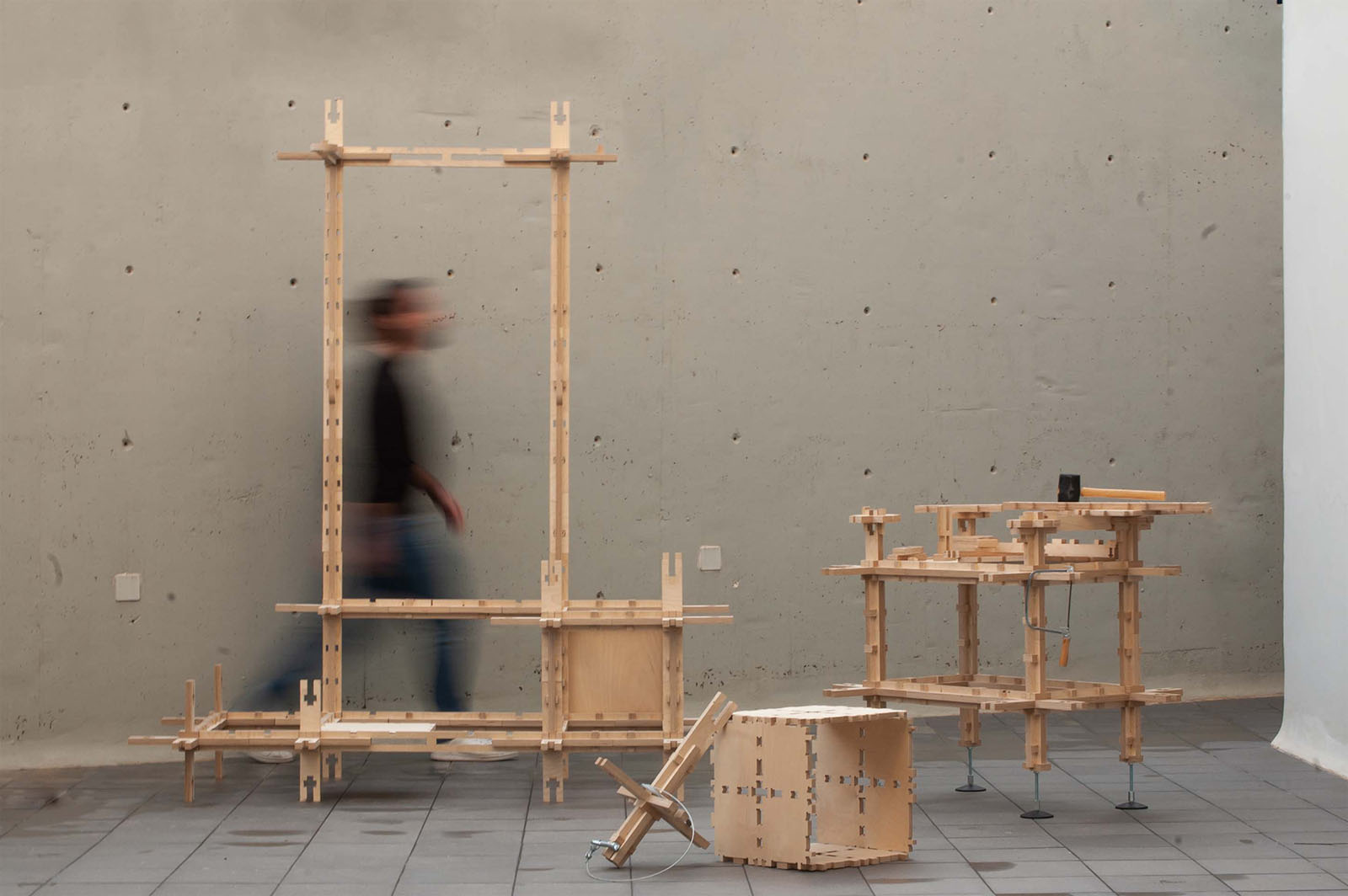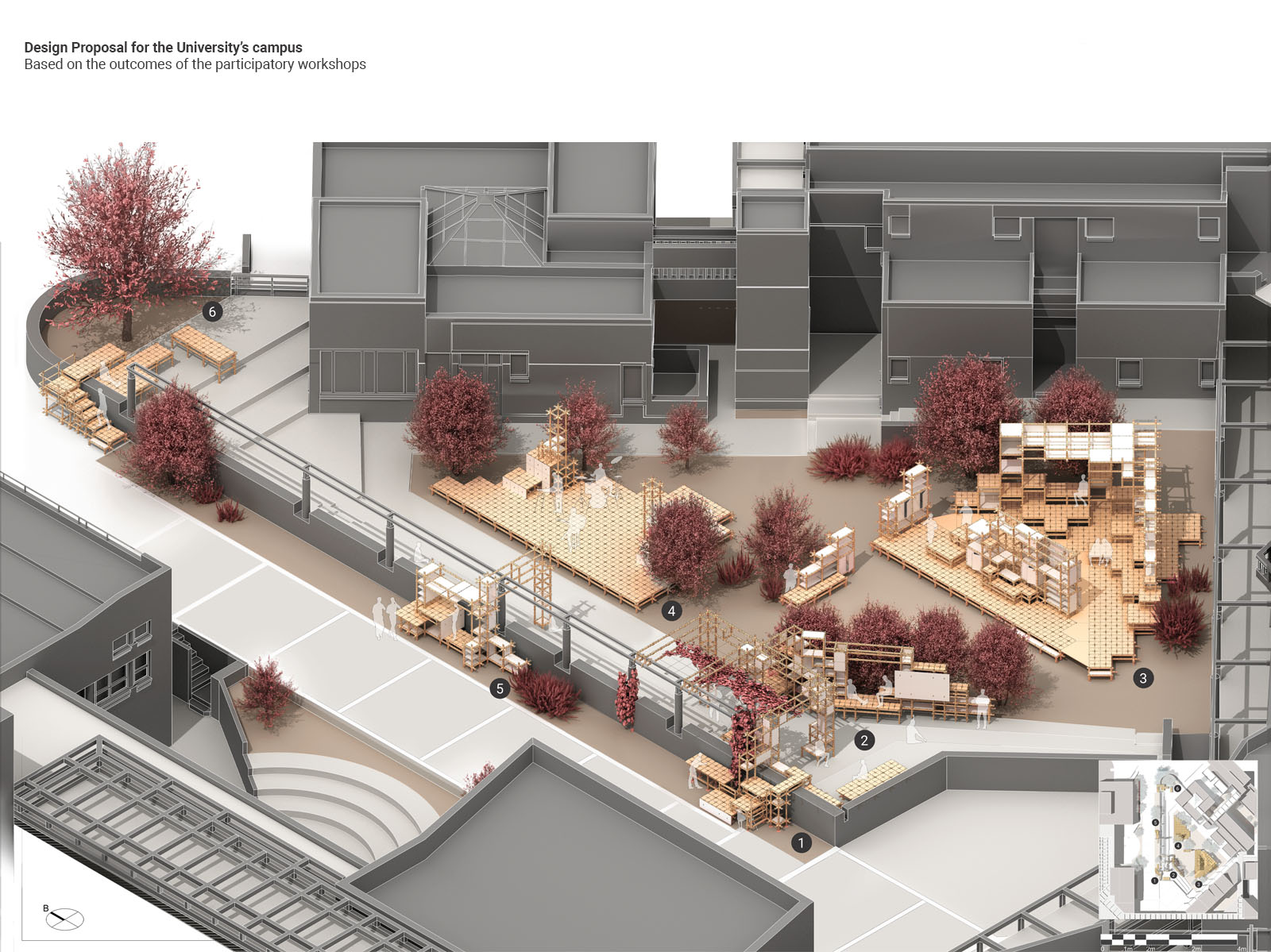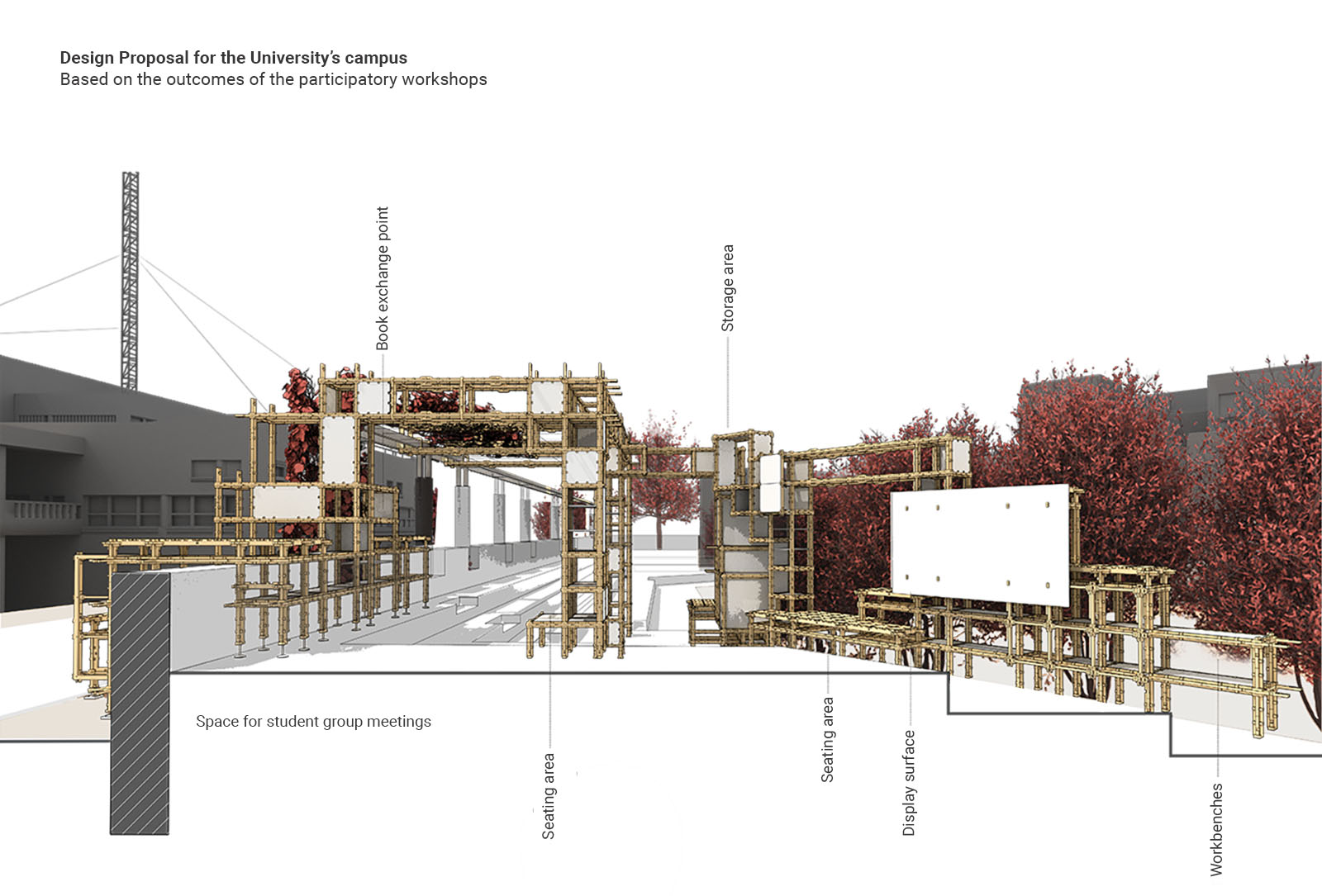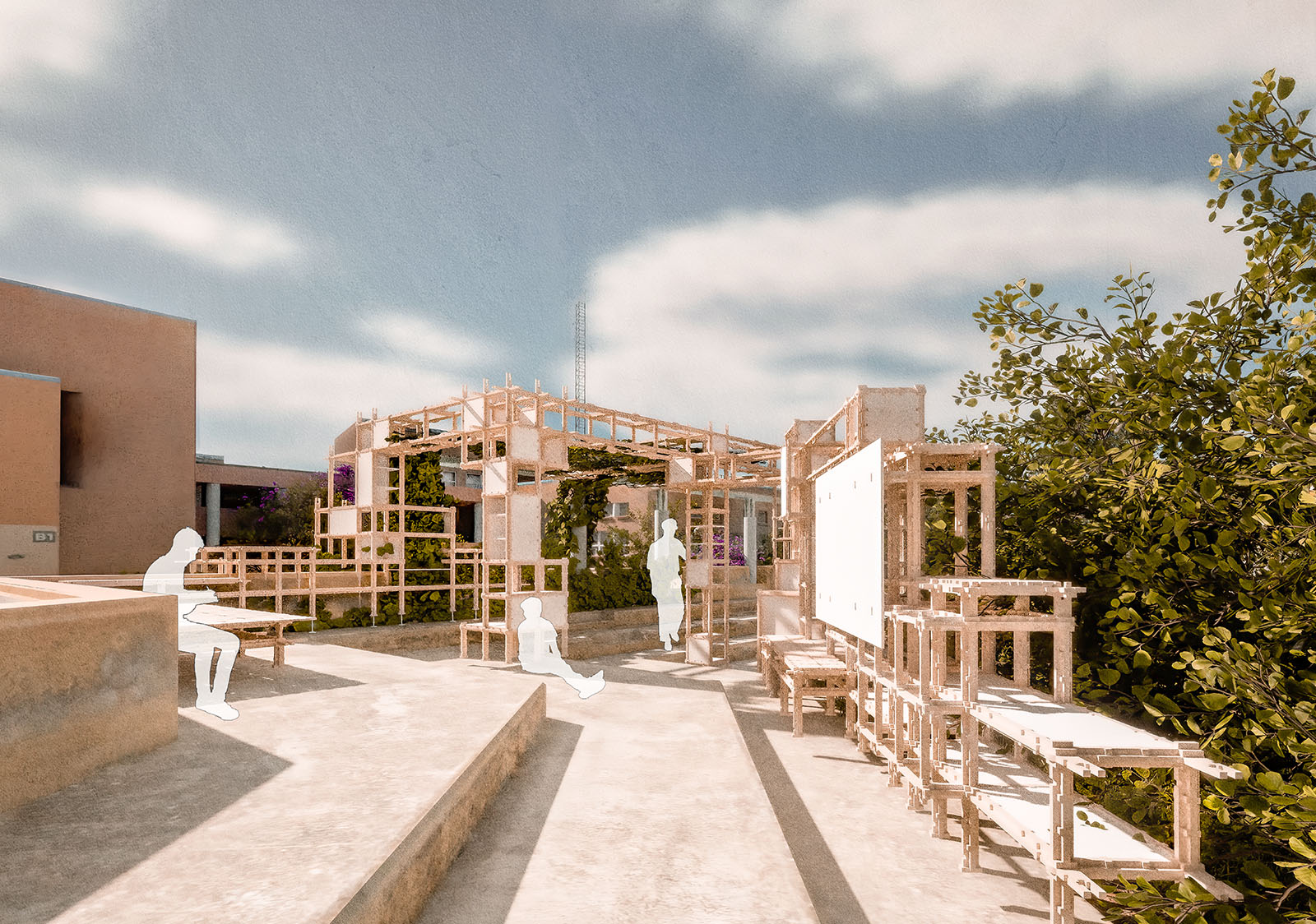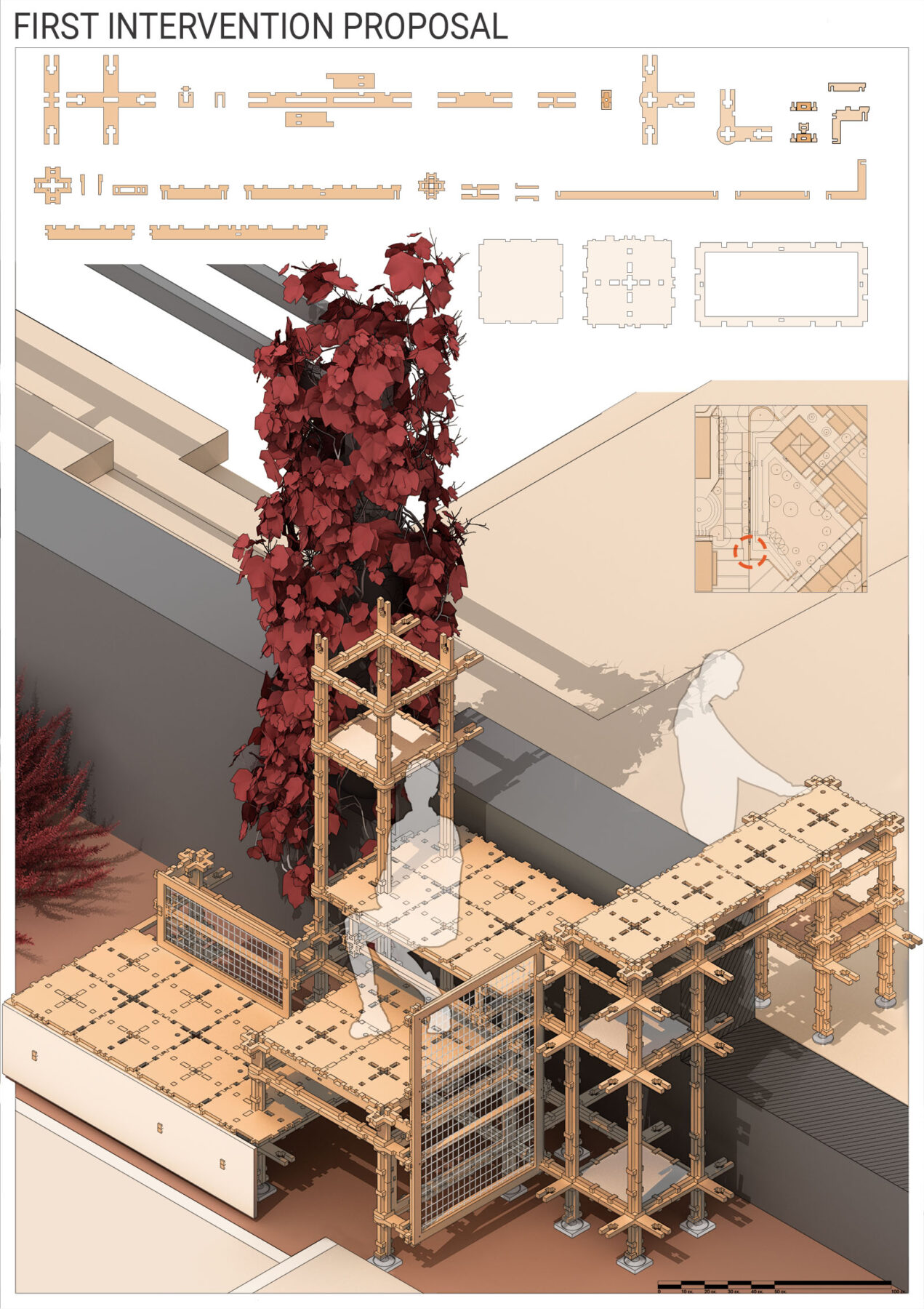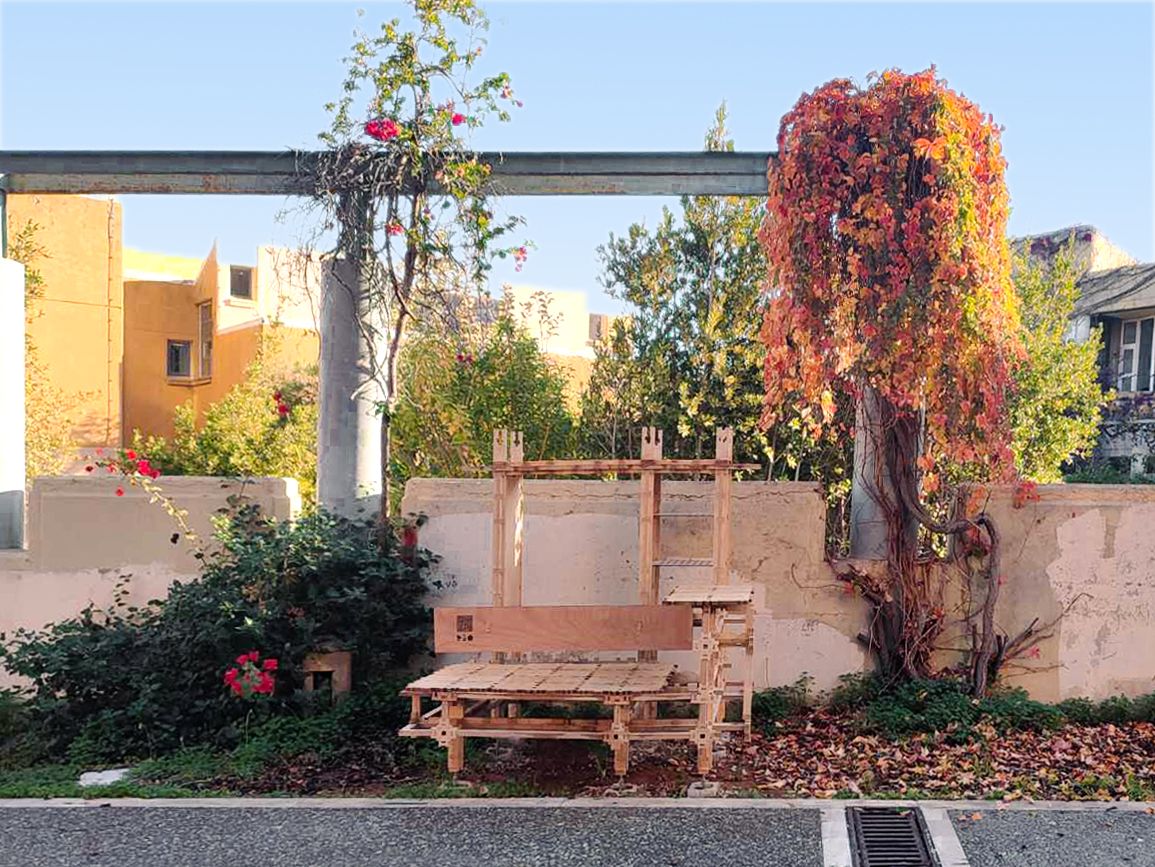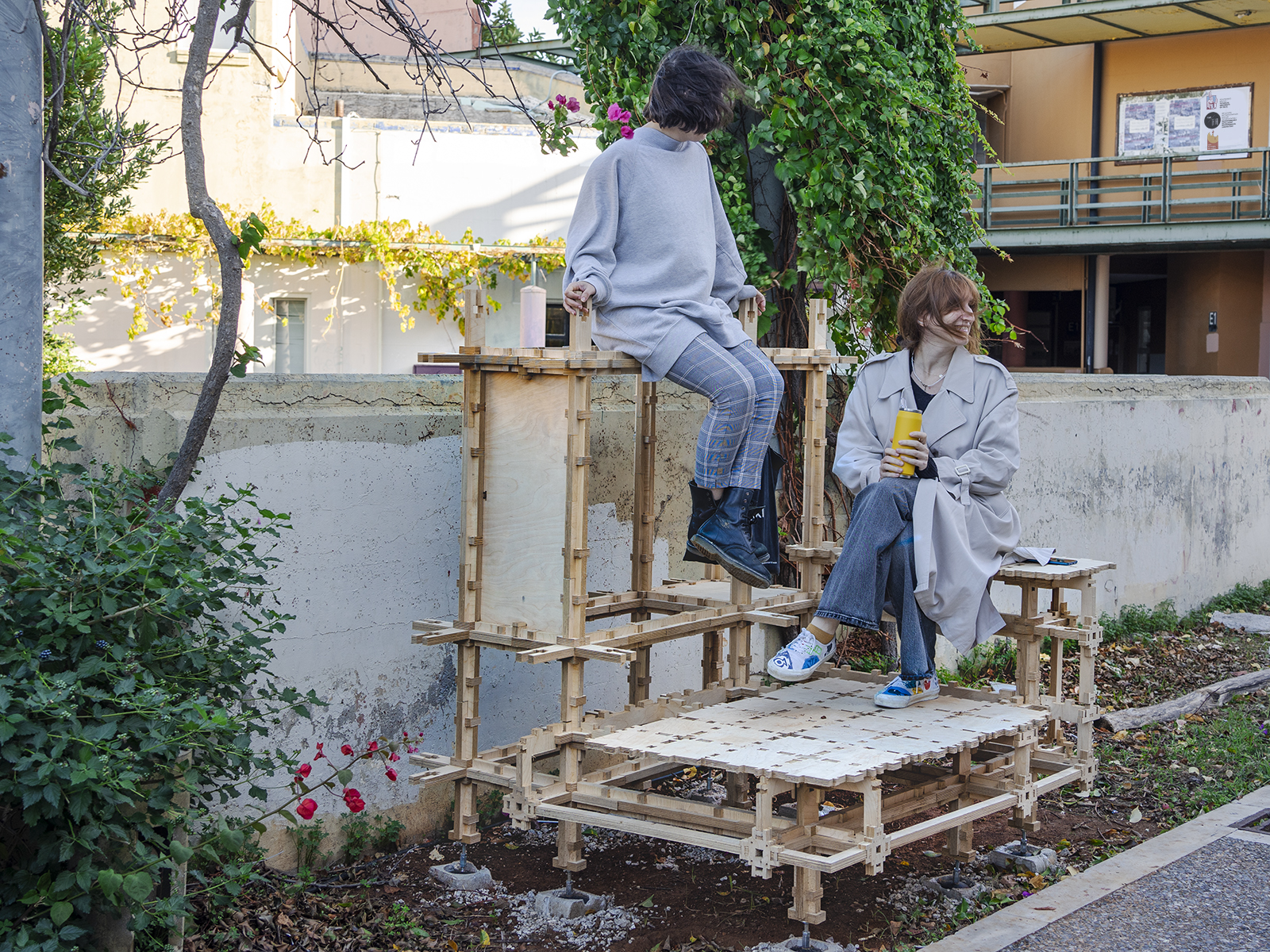This Diploma thesis project led by Efcharis Gourounti and Christos Ivopoulos with the support of the Transformable Intelligent Environments Laboratory (TUC TIE Lab), attempts an exploration of the experimental collaboration of Participatory Practices and Digital Fabrication techniques for the activation of underused public spaces. Based on the low interaction of students with the open spaces of the Technical University of Crete, a pilot application of the above research is implemented in the university campus.
-text by authors
The Process
Rooted in an exploration of tactical urbanism and participatory design methods, this project aimed to develop a series of steps and tools intended as a viable solution for “reclaiming” public spaces, signifying a deliberate effort to address the lack of qualitative engagement in certain areas.
With the belief that involving end-users is crucial for the potential sustainability of the overall design proposal, we pivoted towards the advancement of participatory tools with digital fabrication techniques, as we’ve recognized their transformative potential to heighten engagement and enrich the overall project experience. In the initial stages of information gathering, the study team invited students from all active student groups of the University to participate in the formation of an open group, with the common goal of utilizing the spaces of the University for the benefit of the students. The participants helped identify and select the first study area, followed by an analysis of spatial dynamics and potential uses for it. The next steps included participatory workshops and seminars for design testing, experiments with digital and analog models, prototype construction, and evaluation.
The result of the above is the design and implementation, in a 1:1 scale, of a modular construction system for small-scale compositions, designed to be constructed exclusively with wooden pieces and able to serve multiple purposes according to users’ needs.
It consists of assembled wooden nodes and beams, cut with a CNC router, in sizes proportionate to the human body, while being complemented by a surface system.
During this process, the participating users experimented with the construction system both at the model level and at its actual scale.
Together, they created an initial composition, which was further processed by the study team, with the aim of piloting its installation in the selected area of action.
The goal of the team through this action is to provide a durable yet adaptive spatial system, encouraging students to take initiatives in shaping the space that surrounds them daily. In this context, the long-term goal of the project is to provide a comprehensive methodology along with design tools that will help non-designers assess, intervene, and utilize underused public spaces in their cities.
Facts & Credits
Project title: Participatory Processes and Digital Fabrication: A Pilot Case Study at the Technical University of Crete
Project type: Diploma Thesis project
University: Architecture School, Technical University of Crete
Student Team: Efcharis Gourounti and Christos Ivopoulos
Supervisor: Oungrinis Konstantinos – Alketas
READ ALSO: "Sunshine” trailer | by Normless architecture studio
